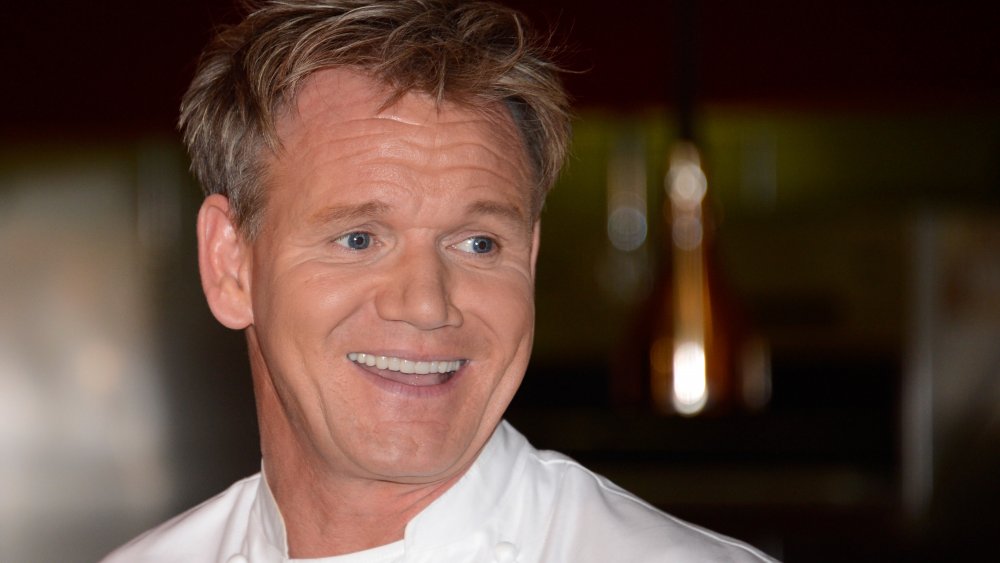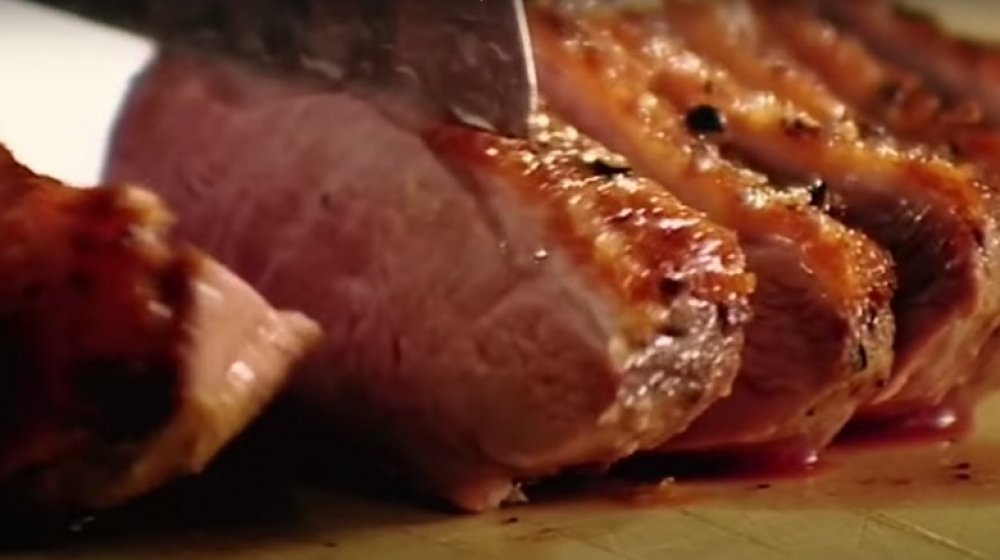The Unique Way Gordon Ramsay Makes Roast Duck
Okay, so maybe Gordon Ramsay isn't the only person ever to have used this technique, but he does have a pretty foolproof method for cooking the fanciest kind of poultry there is: duck. If you've never had the pleasure of having duck, it's almost like something in between chicken and red meat (via Healthline). Duck has a uniform texture and a soft bite but tends to be darker and richer than your average chicken breast (via Vox). It's also fatty — very fatty. That's where food TV's most famous insulter comes in (via Fine Dining Lovers).
Starting with skin-on duck breasts, Gordon Ramsay starts with what is perhaps the key step: seasoning the meat with salt and pepper. As he notes, the salt dries out the skin a little bit, which will help it crisp up. Ramsay places the duck in a cold pan without oil, skin down, and heats both at once. He explains that while this step might seem strange, it actually helps the skin release more fat than if it went straight onto a hot pan, which would create a seal that traps it in. As the pan heats, a large amount of fat is rendered, and Ramsay flips the breast once it develops a brown, crispy crust, and sears the bottom half.
How Gordon Ramsay tests duck for doneness
Next, Gordon Ramsay puts the pan, duck skin side down, into an oven at about 200 degrees Fahrenheit to finish cooking the duck breasts. Ramsay recommends six to eight minutes in the oven, and then tests their doneness by poking them firmly. If they're done — which means, still pretty pink in the center — they'll be "slightly resistant, but still quite bouncy." Here's the catch: you can't cut into the breasts yet, or you'll anger the culinary gods. Let the duck breasts "rest" like you could a steak, until they cool down slightly.
Once you've let the duck breasts rest, you can finally cut into them. Ramsay recommends thick slices. They'll have a crunchy skin crust, a thin layer of fat on top, and perfectly cooked, tender meat throughout. Ramsay even suggests this tip: save the remaining duck fat in a glass container, and use it later on to cook potatoes. There you have it: with this easy alternative to chicken and a technique to perfectly cook it, your taste buds will surely thank you.

